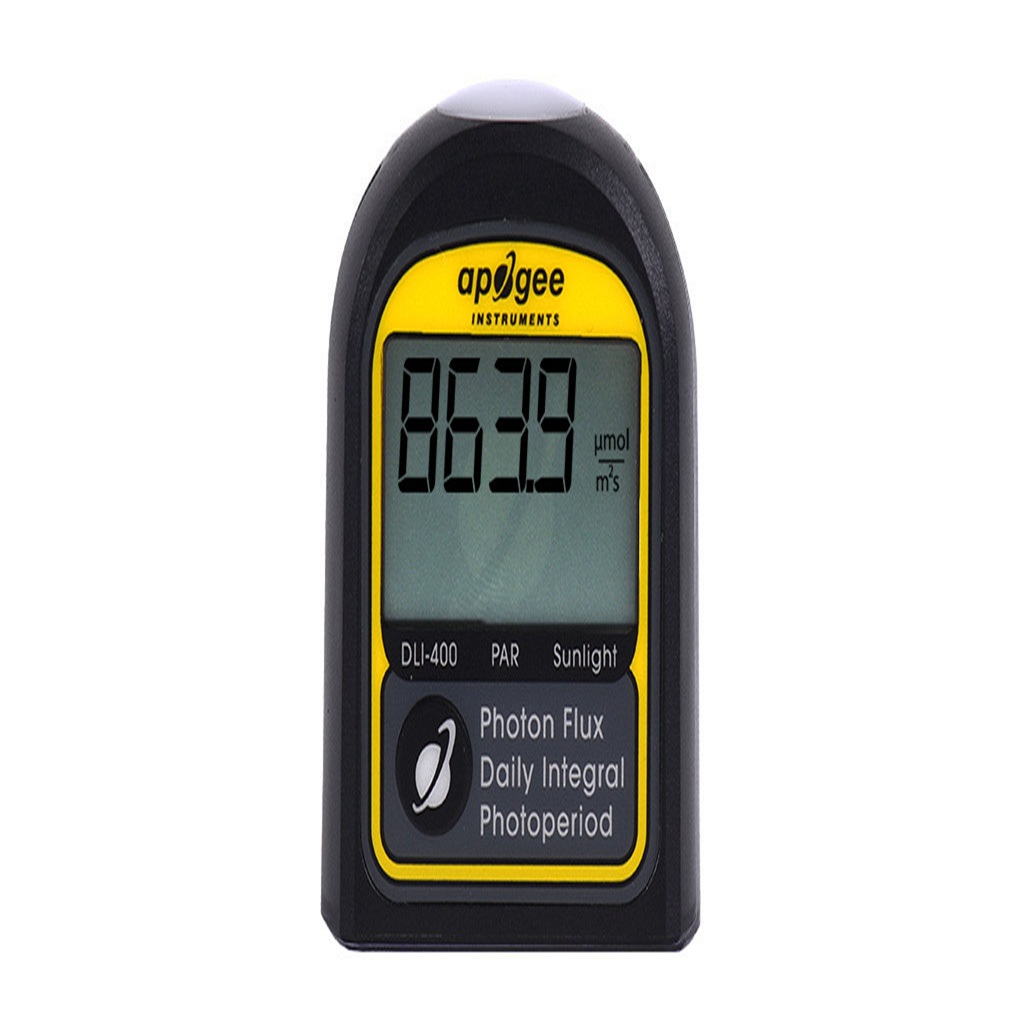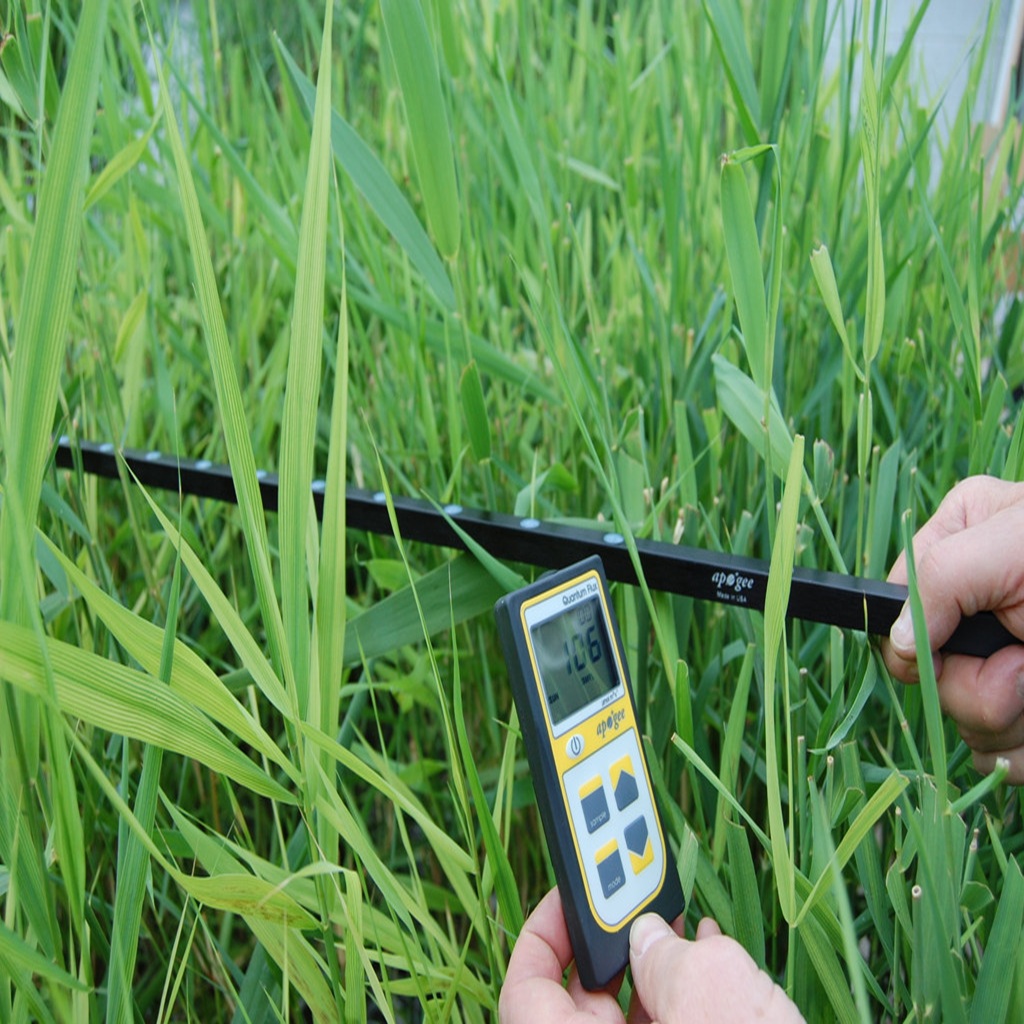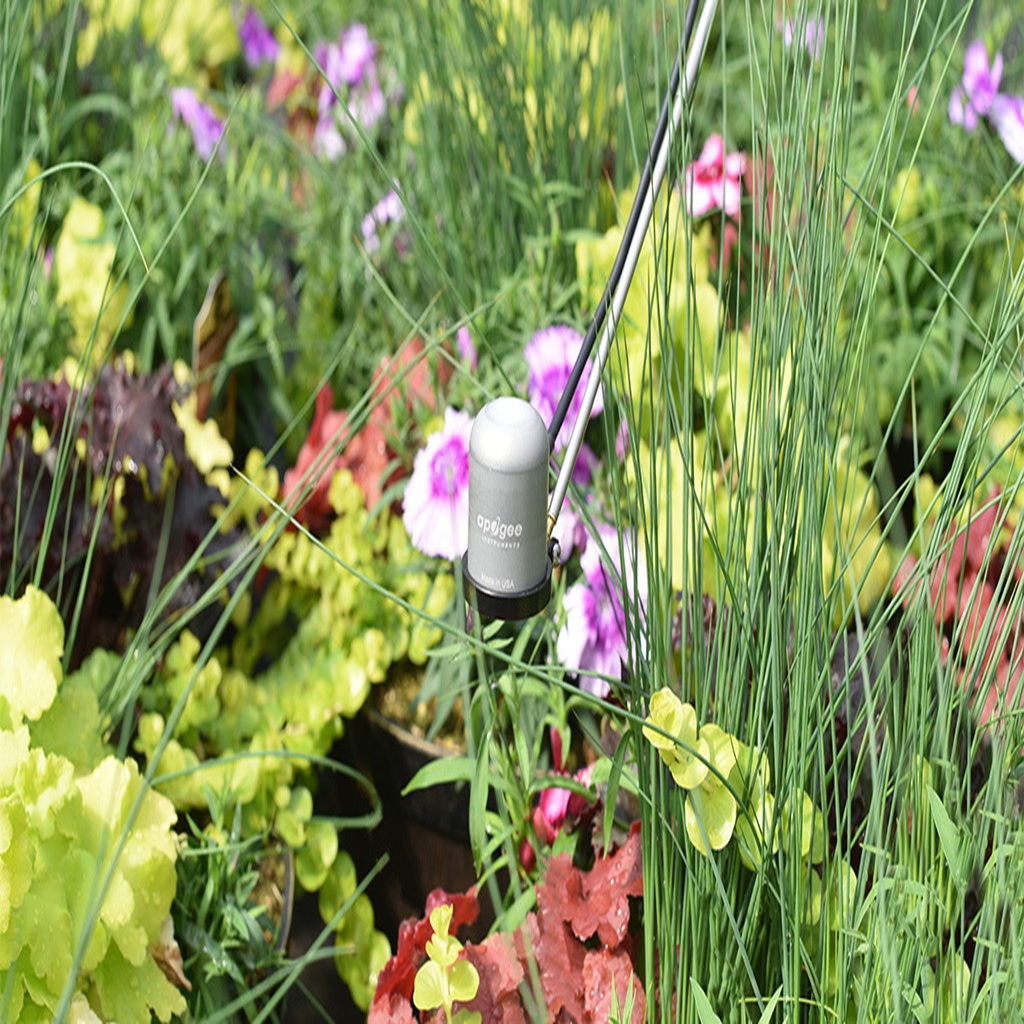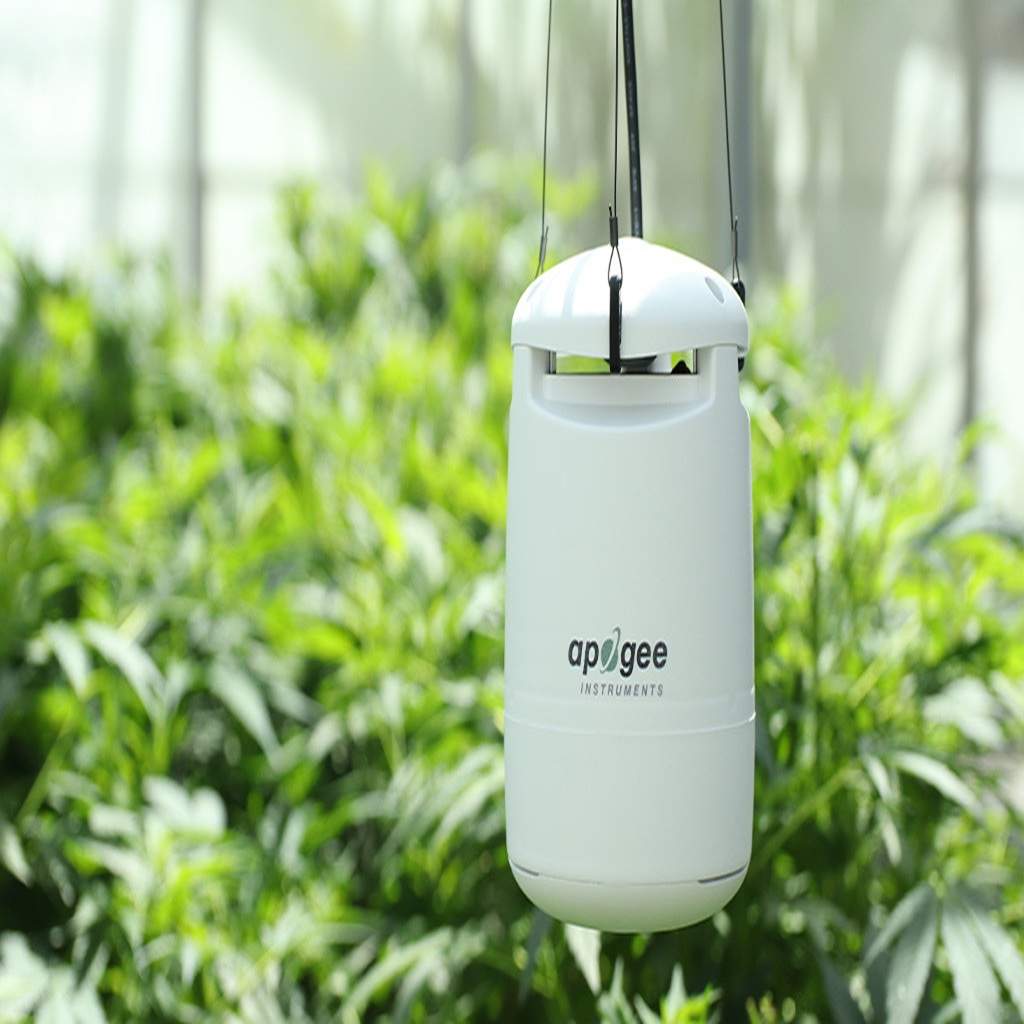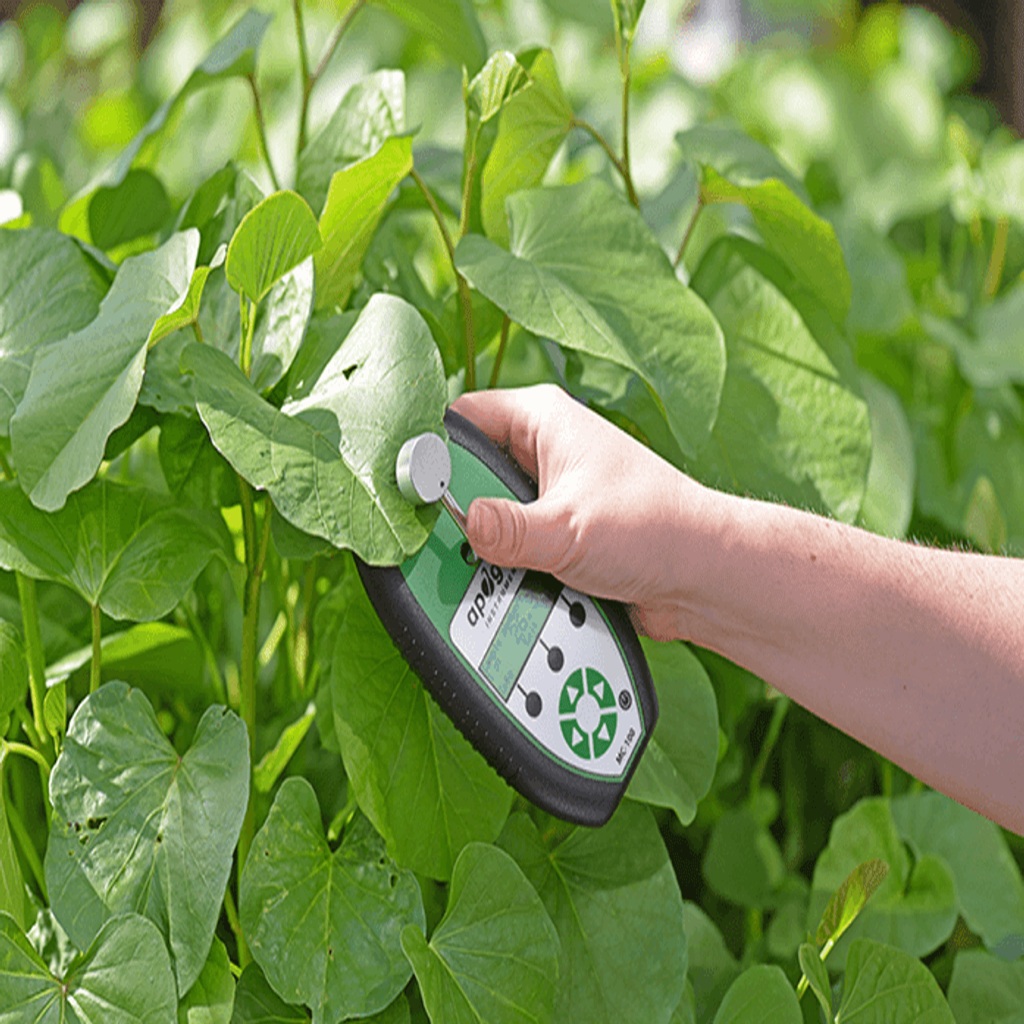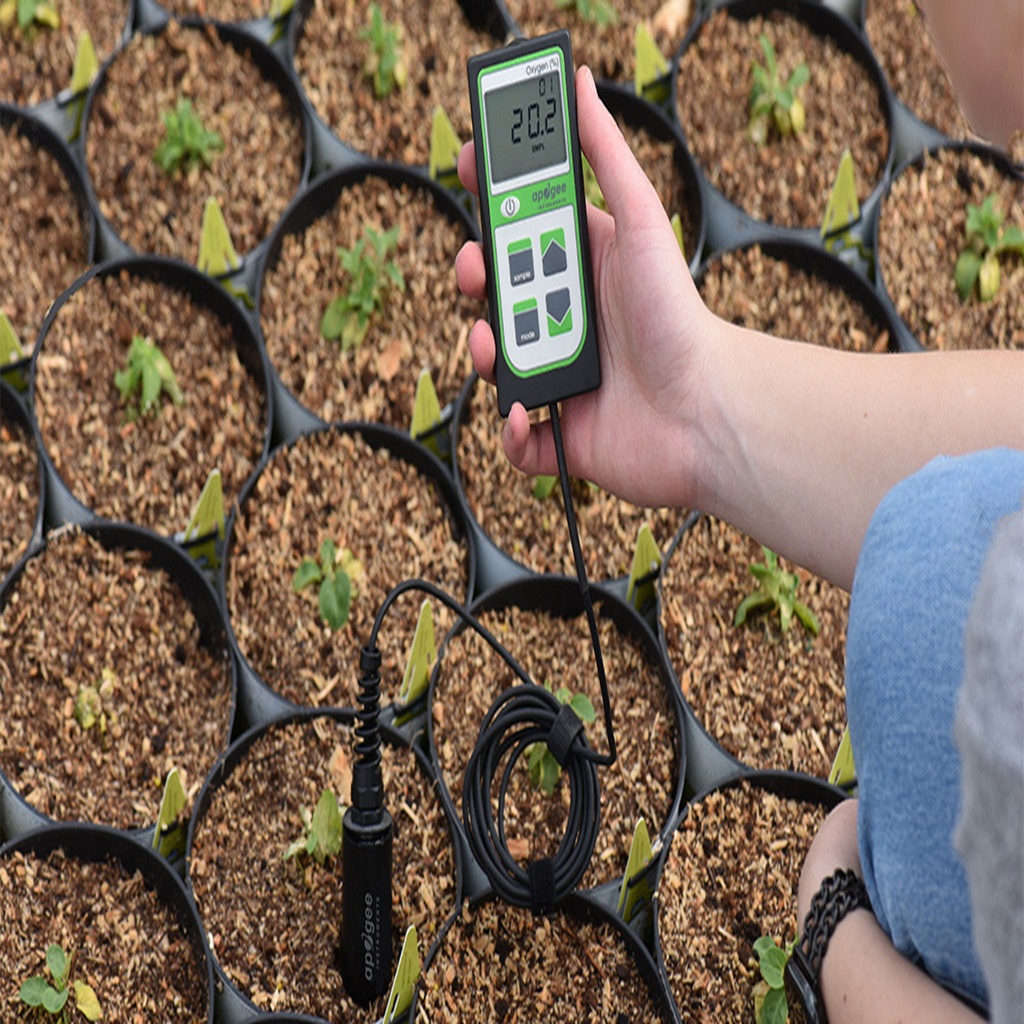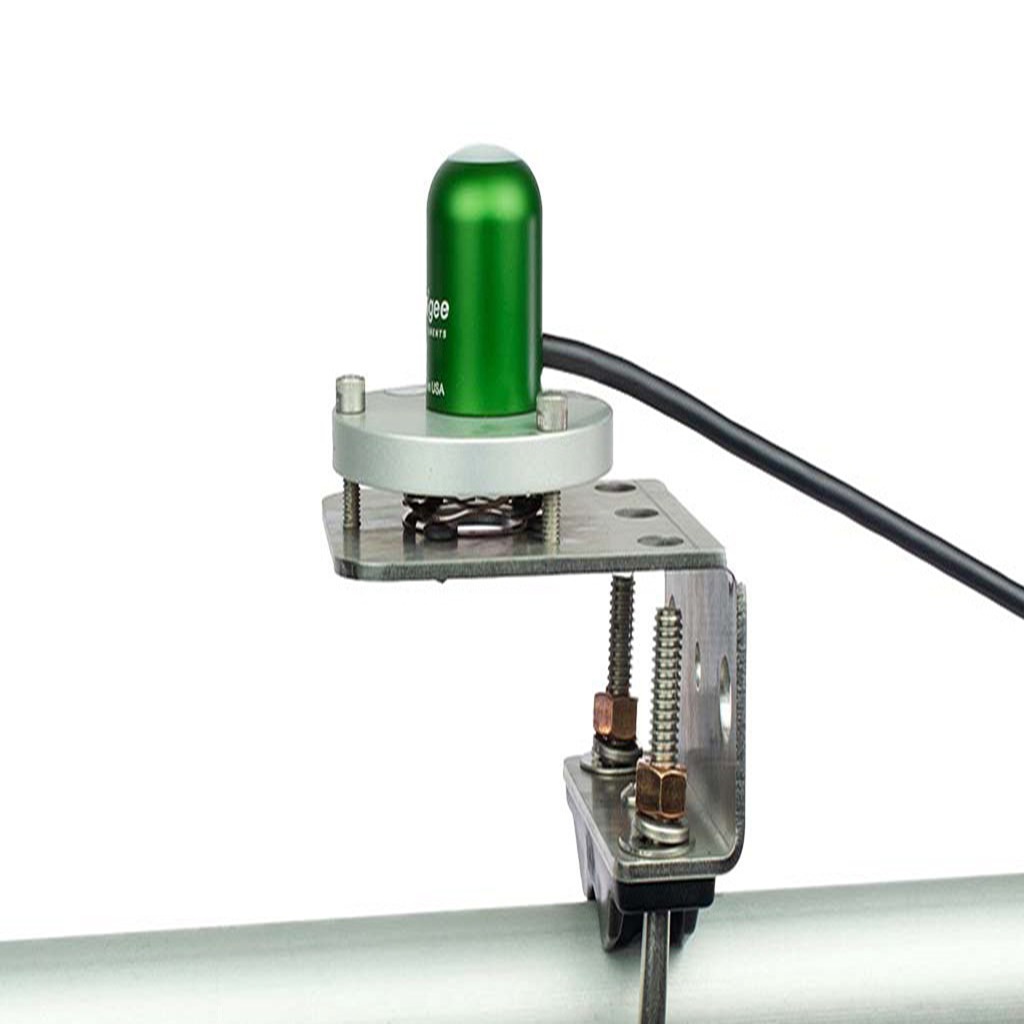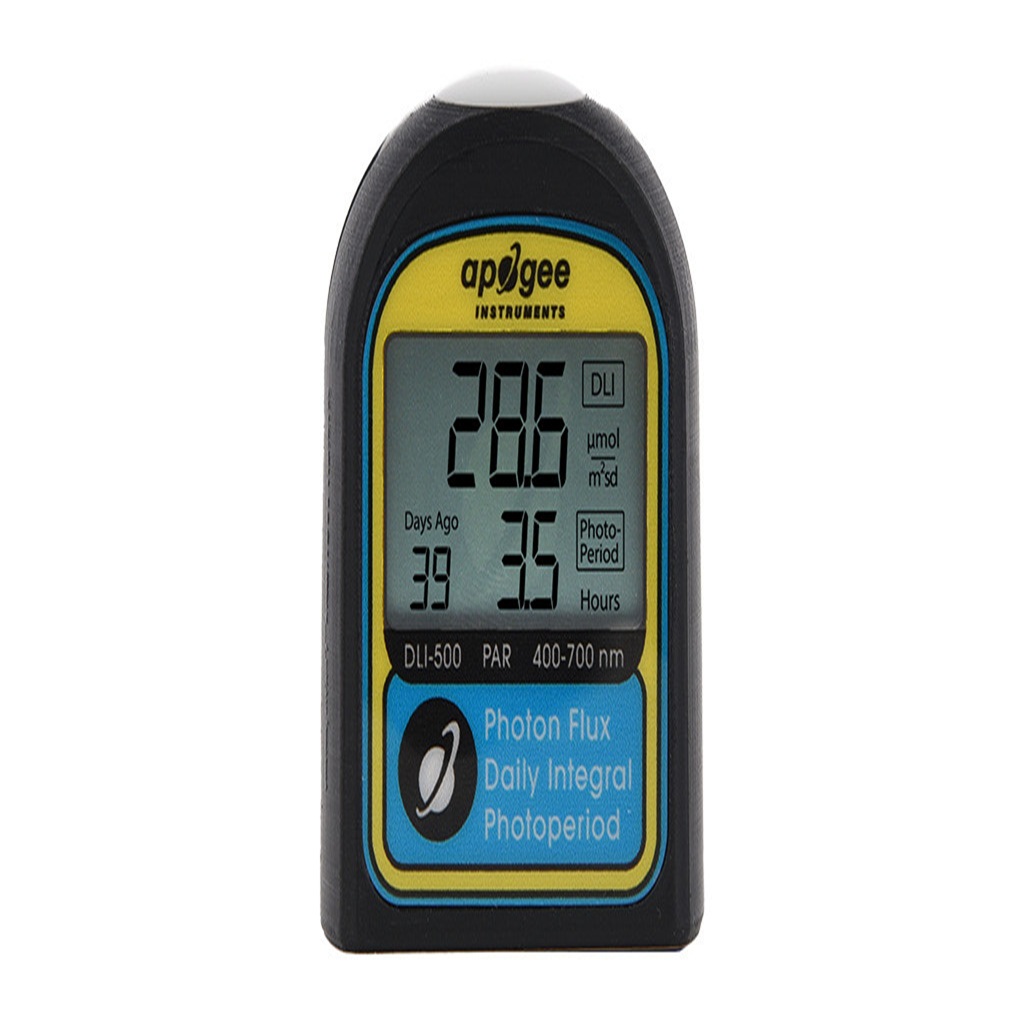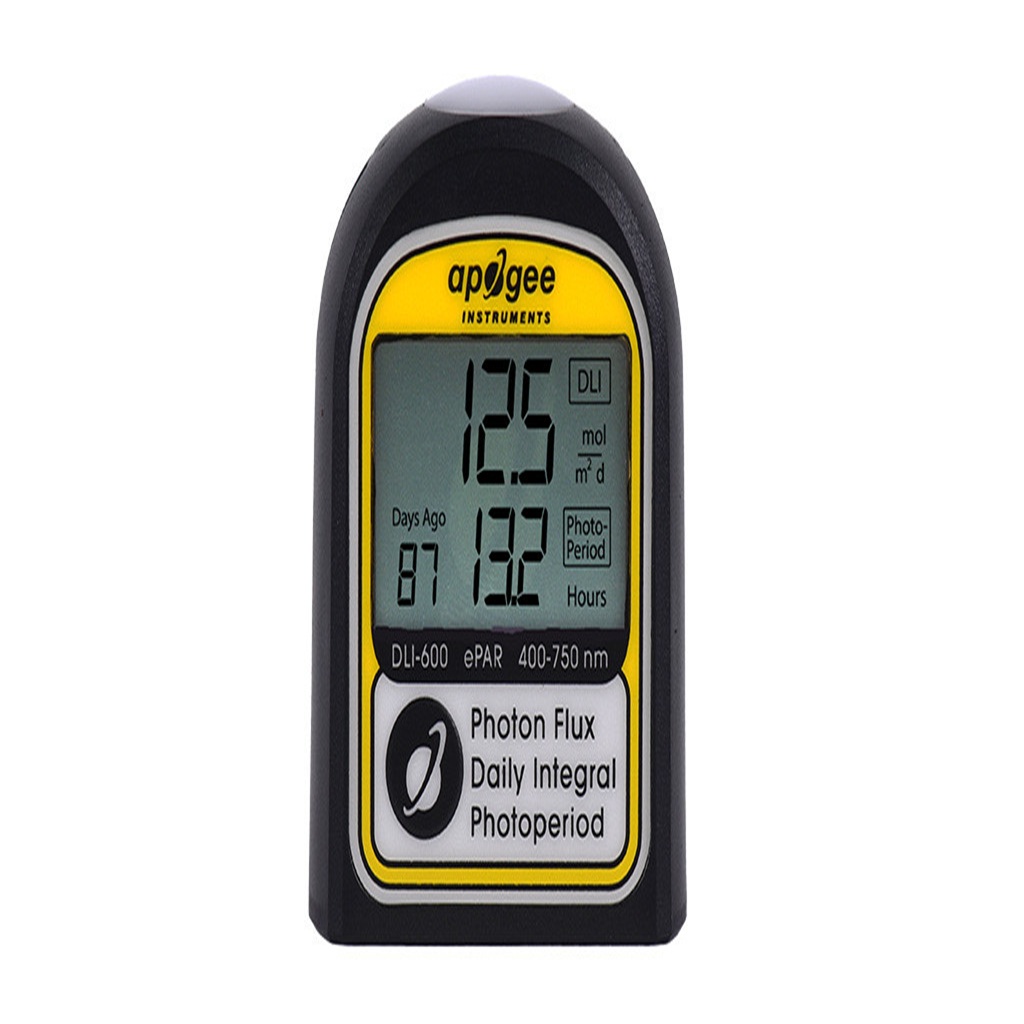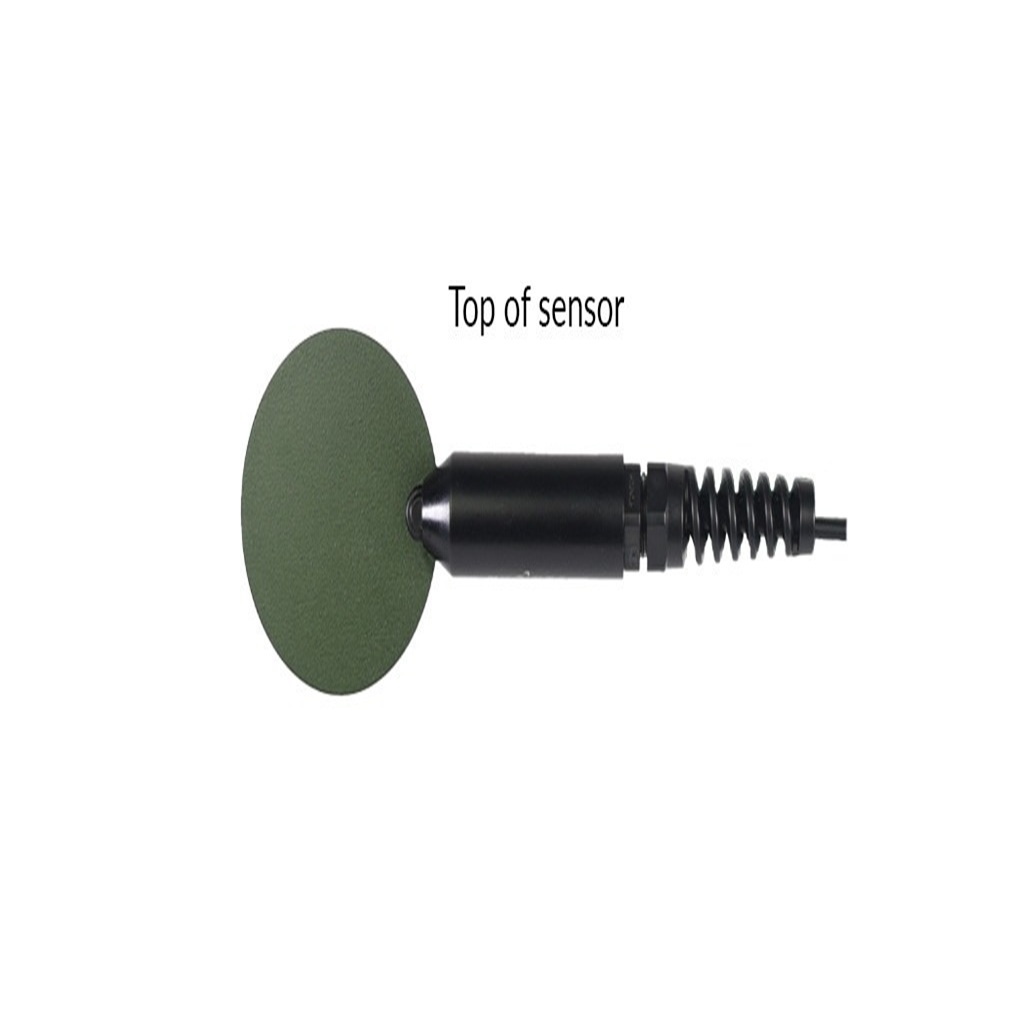At UTNT, we bring you advanced agricultural monitoring solutions through world-renowned Apogee Instruments. These instruments are specially designed for farmers, researchers, and agritech professionals to measure key environmental parameters that affect crop health and yield. Whether you’re managing a greenhouse, open-field farm, or research facility, our Apogee-based solutions help you monitor light, temperature, humidity, CO₂, soil, and plant health in real time.
With Apogee’s high-accuracy sensors like PAR (Photosynthetically Active Radiation) meters, NDVI plant health monitors, chlorophyll content meters, and environmental condition sensors, you can make smarter decisions for irrigation, fertigation, light control, and overall crop management. UTNT integrates these sensors into a complete system – providing installation, support, and data interpretation – to ensure better productivity, resource efficiency, and sustainability in agriculture.
Chlorophyll Concentration Meter
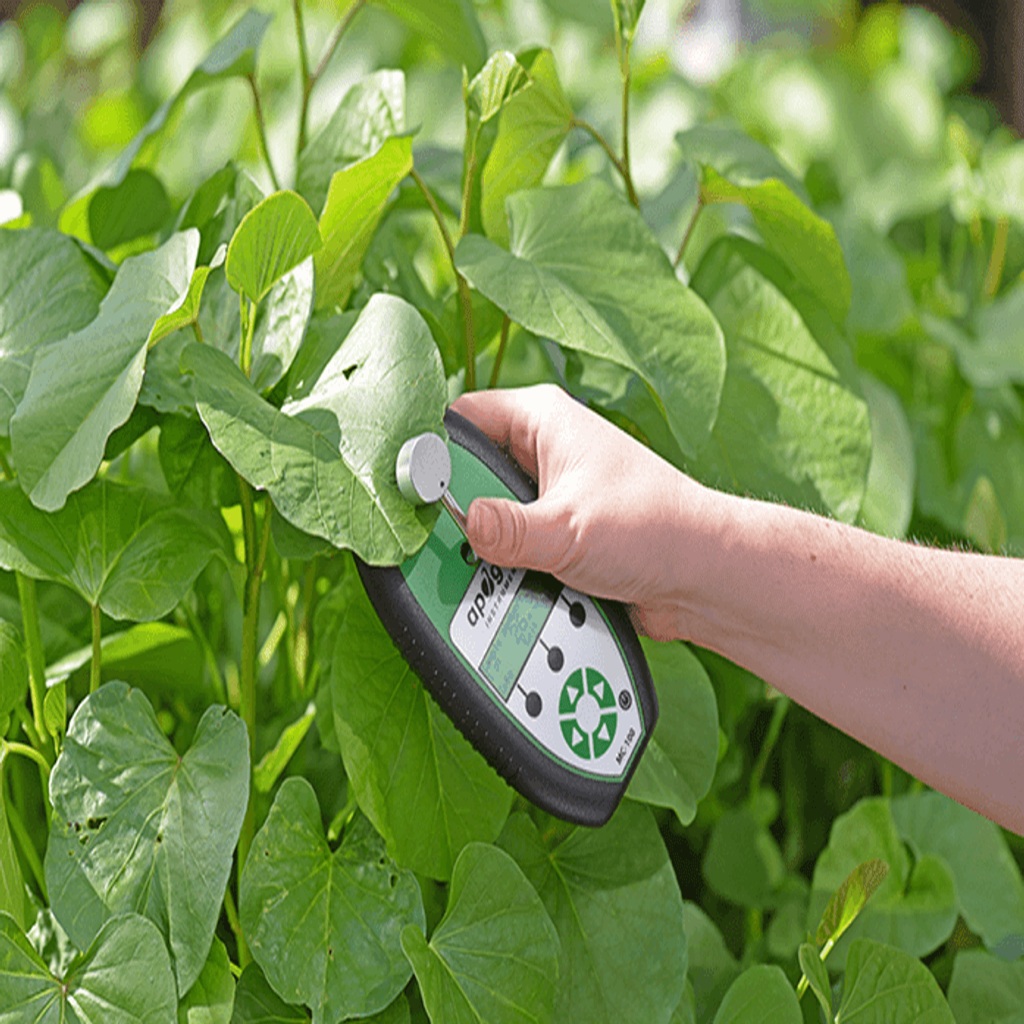
The MC-100 Chlorophyll Concentration Meter offers precise, non-destructive measurement of chlorophyll concentration, ideal for plant health monitoring in agriculture, research, and horticulture. Unlike traditional SPAD or CCI meters.
Read Moreit provides absolute readings in μmol/m², ensuring scientifically accurate data. The device delivers results in less than 3 seconds with ±10 μmol/m² resolution, ±1% linearity, and exceptional repeatability, making it highly reliable. With over 35 crop-specific calibrations, it supports a wide range of plant species with unmatched accuracy. Its intuitive interface and large internal memory simplify data collection and long-term tracking. Optional GPS integration allows geo-referenced data for field mapping. The MC-100 is powered by a standard battery, with USB connectivity for seamless data transfer to analysis software. Built with temperature-compensated sensors, it maintains accuracy across environmental changes. Designed for ease of use and portability, it’s perfect for both fieldwork and lab studies. Whether optimizing fertilizer use, detecting stress, or guiding harvest timing, the MC-100 provides the insights needed for smarter, more sustainable crop management. Trusted globally, it’s the gold standard for chlorophyll analysis.
show lessExtended Photosynthetically Active Radiation
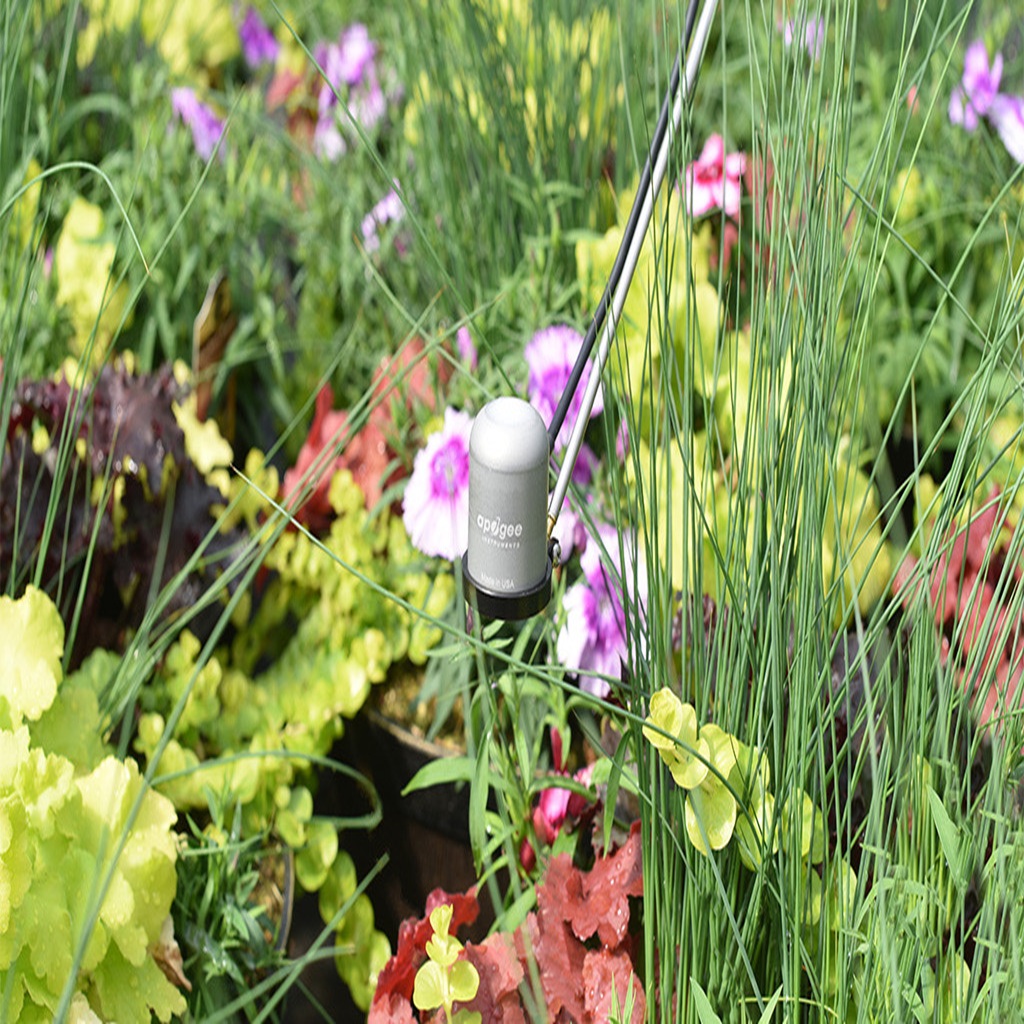
The Apogee ePAR Sensor is an advanced light sensor designed to measure the extended photosynthetically active radiation (ePAR) range from 400 to 750 nm, ideal for modern horticultural research and precision plant lighting.
Read MoreUnlike traditional PAR sensors, it captures light in the far-red spectrum, offering deeper insights into plant morphogenesis and photosynthetic efficiency. Trusted in scientific and commercial settings, the sensor delivers exceptional accuracy with a calibration uncertainty of just ±5% and measurement repeatability below 0.5%. Its fast response time under 1 ms and non-linearity under 1% ensure precise real-time data, Engineered with cosine correction for reliable angular readings and long-term stability under 2% drift per year, it’s perfect for canopy-level light monitoring. The rugged design is IP68-rated, submersible up to 30 meters, and performs flawlessly in extreme environments from -40°C to 70°C. Multiple output options (analog, digital, USB, SDI-12, Modbus) offer seamless integration with any data system. The ePAR sensor is widely used in photobiology research, controlled-environment agriculture, and LED light optimization. Backed by Apogee’s scientific legacy, this sensor is your key to unlocking advanced plant-light interactions.
show lessGuardian CEA Multi-Sensor Monitor
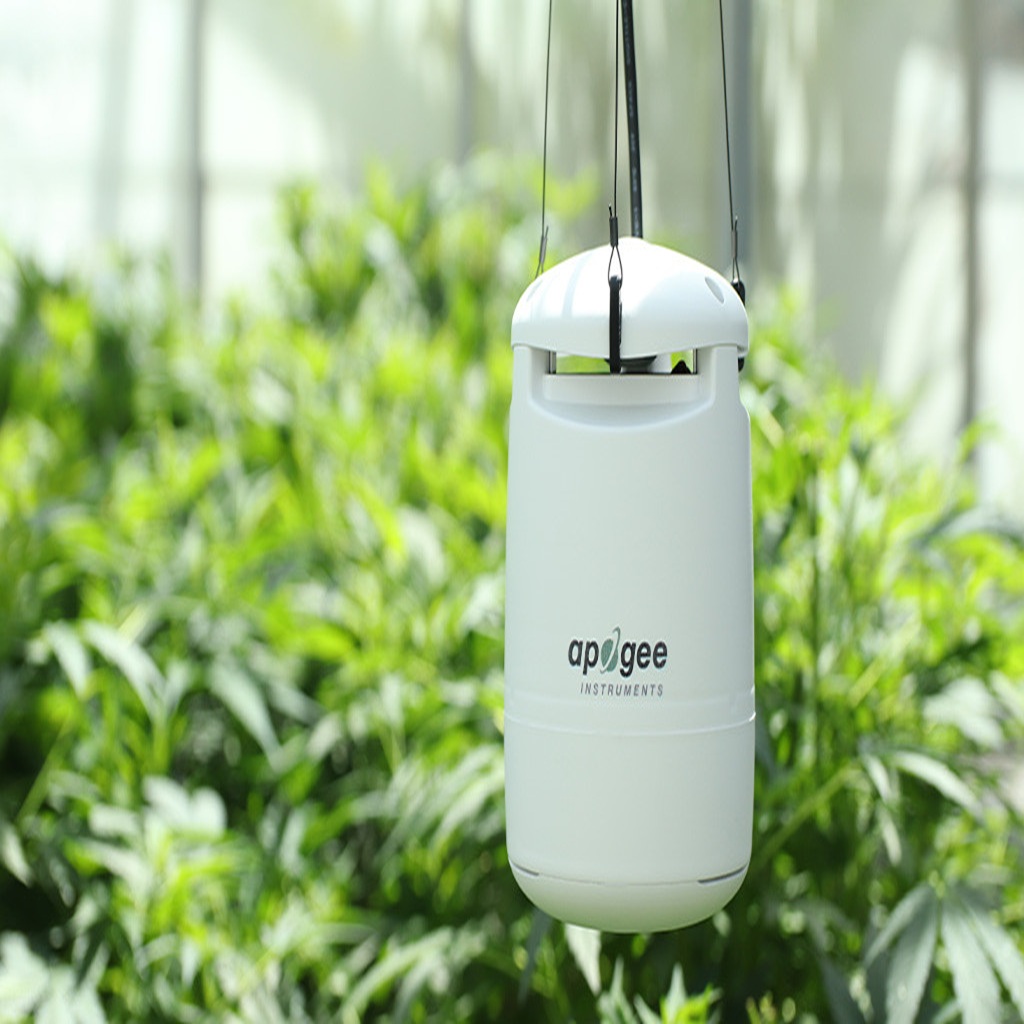
The Guardian CEA Multi-Sensor Monitor is a high-performance environmental monitoring solution tailored for greenhouses, vertical farms, and indoor grow environments. It integrates PAR (SM-500) or extended ePAR (SM-600) sensors
Read Morealong with measurements for temperature, humidity, CO₂, barometric pressure, photoperiod, vapor pressure deficit, and DLI—all in a single elegant device. Built for accuracy and efficiency, it offers ±5% calibration precision, less than 0.5% repeatability, and low long-term drift (<2% per year), ensuring dependable data over time. Its fan-aspirated design delivers stable air temperature readings, while its 180° field of view ensures complete light monitoring coverage. With Modbus and Bluetooth connectivity, users can access real-time data and visual summaries via the ApogeeConnect app. Operating across a wide environmental range and storing up to 9 months of 1-minute data, it’s built for both standalone use or system integration. Lightweight and durable, with IP53 protection, it simplifies deployment and maintenance. The Guardian sensor is a smart choice for growers and researchers who need precise, real-time insight into crop growth conditions for optimal performance.
show lessMQ-301X Line Quantum Sensor
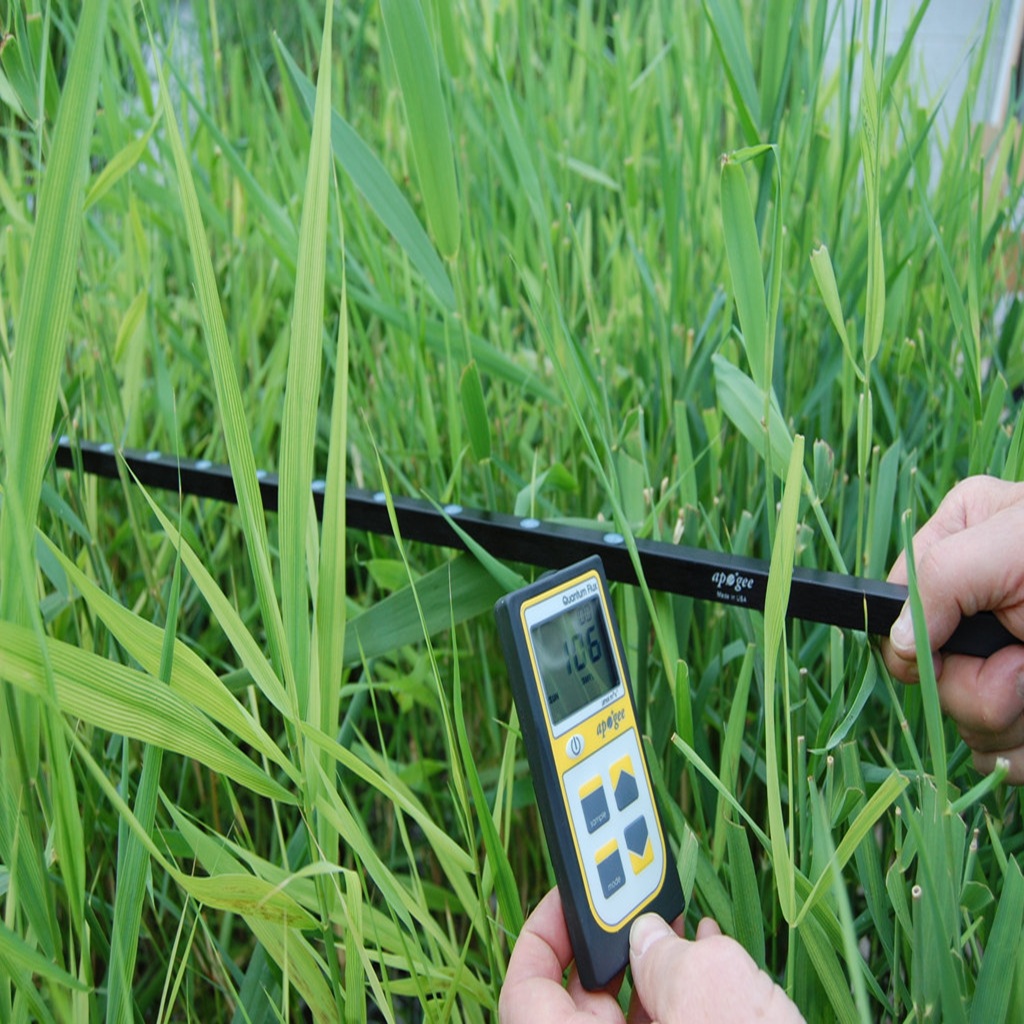
The Apogee MQ-301X Line Quantum Sensor is a professional-grade device designed to measure photosynthetically active radiation (PAR) with high accuracy across greenhouse, field, and growth chamber environments. It features a sensor bar with 10 integrated sensors.
Read MoreEnsuring a precise spatial average of incoming and reflected PPFD. With cosine-corrected accuracy, less than ±5% directional error, and under 0.5% repeatability variation, it provides stable, consistent measurements. Its spectral response range of 370–650 nm makes it ideal for natural sunlight and broadband light sources. Built for durability, the sensor housing is fully weatherproof and waterproof and includes a built-in bubble level for proper alignment. The system has a calibration uncertainty of ±5% and maintains long-term stability with less than 2% drift per year. Its ultra-fast response time (<1 ms) supports real-time monitoring. The MQ-301X comes with a handheld meter for instant display and data logging, making it user-friendly and field-ready. Operates reliably from -10°C to 60°C and in high humidity, even when submerged up to 30 meters. Ideal for researchers, agronomists, and greenhouse managers who demand robust, repeatable light measurements for crop optimization.
show lessNormalized Difference Vegetation Index Sensor
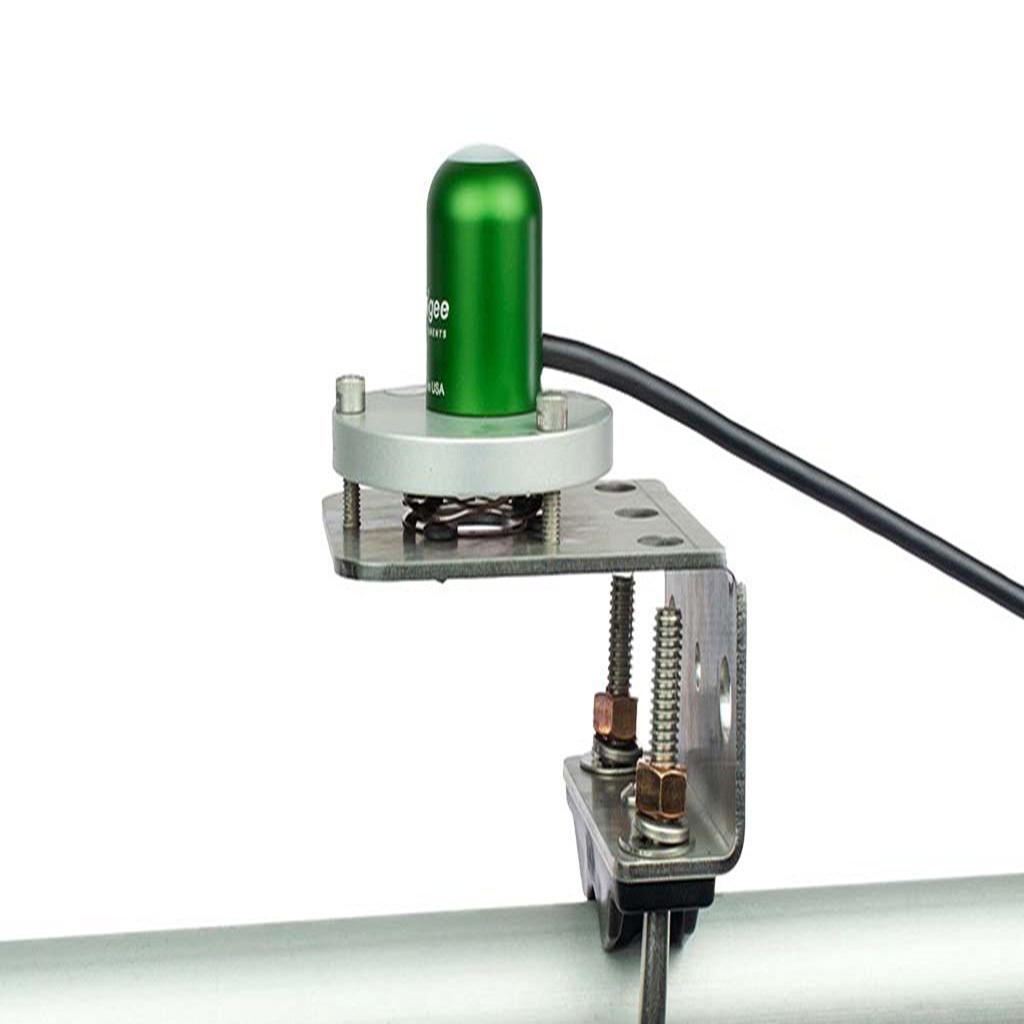
The Apogee NDVI Sensors are advanced tools designed to measure plant health through the Normalized Difference Vegetation Index (NDVI), a vital indicator of canopy greenness and chlorophyll content. By capturing red (650 nm) and near-infrared (810 nm) reflectance, these sensors offer accurate insight into vegetation vigor and seasonal changes
Read MoreIdeal for ground-truthing satellite imagery and continuous field monitoring, they come in upward- and downward-looking models for flexible deployment. With less than 1% measurement repeatability and ±5% calibration accuracy, they deliver dependable performance in both controlled and harsh outdoor environments. Housed in rugged IP68-rated aluminum, the sensors resist water, dust, and temperature extremes from -40°C to 70°C. The built-in self-cleaning domed diffuser reduces maintenance and ensures consistent data. Apogee’s sensors are cosine-corrected for optimal angular response and boast long-term stability under 2% drift per year. Output is available in analog or digital SDI-12 formats, with plug-and-play integration and fast response times under 1 ms. These sensors are trusted worldwide in research, agriculture, and remote sensing applications, providing clear, continuous NDVI readings for smarter decision-making.
show lessApogee MO-200 Oxygen Meter
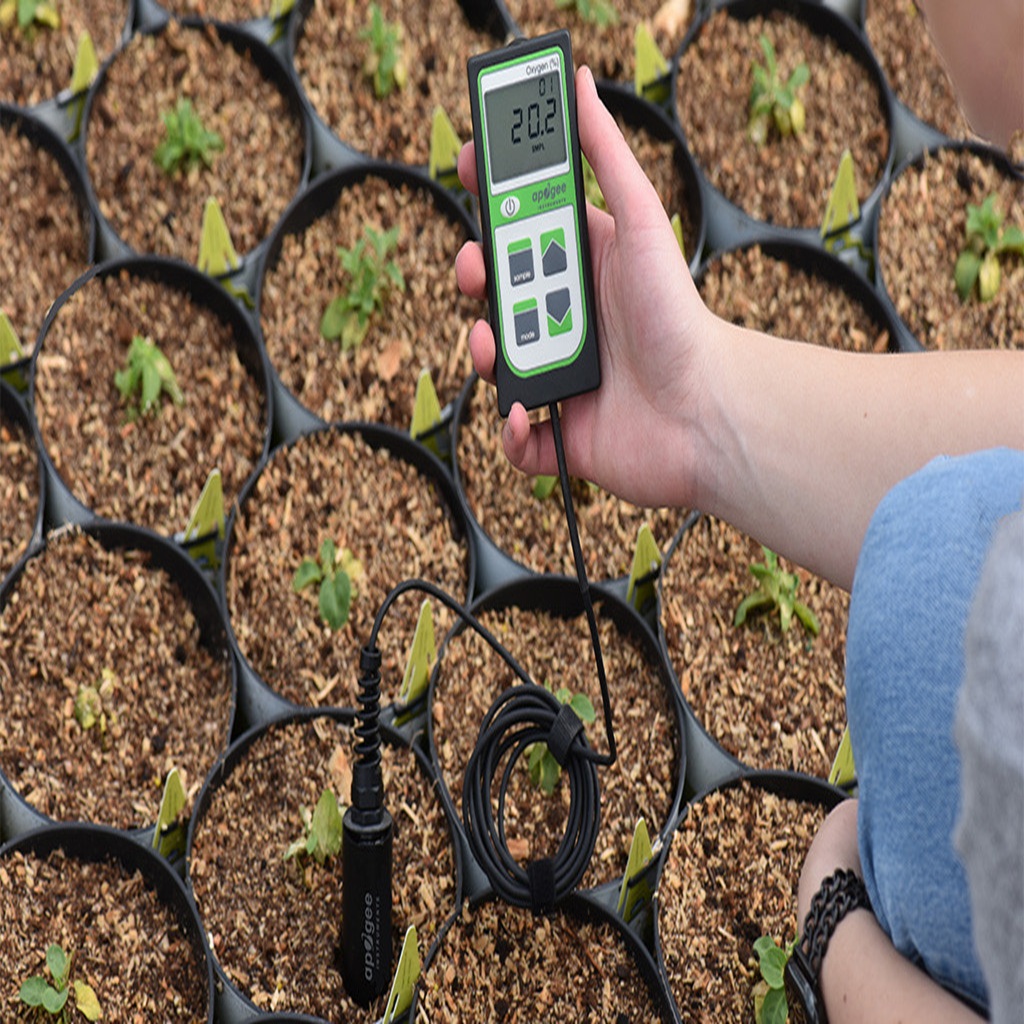
The Apogee MO-200 Oxygen Meter is a rugged, precision instrument designed for measuring oxygen concentrations from 0 to 100% in both field and laboratory environments. Built for long-term deployment, it features a fully potted polypropylene body that withstands harsh conditions, including acidic soils and my tailings.
Read MoreThe sensor delivers highly stable and repeatable readings (±0.1%) with a fast 14-second response time. Its unique head options—a diffusion head for porous media and a flow-through head for tubing applications—ensure versatile performance across a range of research and environmental monitoring tasks. The MO-200 is unaffected by most interfering gases and includes a heated membrane inlet to prevent vapor condensation during soil or compost use. Data output is available via analog, SDI-12, or a handheld meter, supporting both real-time and logged data collection. Ideal for tracking O₂ gradients, respiration rates, or redox potential, the sensor also includes an internal thermistor for temperature compensation. Easy to calibrate and simple to integrate, the MO-200 is trusted by professionals monitoring plant, soil, and atmospheric oxygen in dynamic conditions.
show lessDaily Light Integral (DLI) Meters
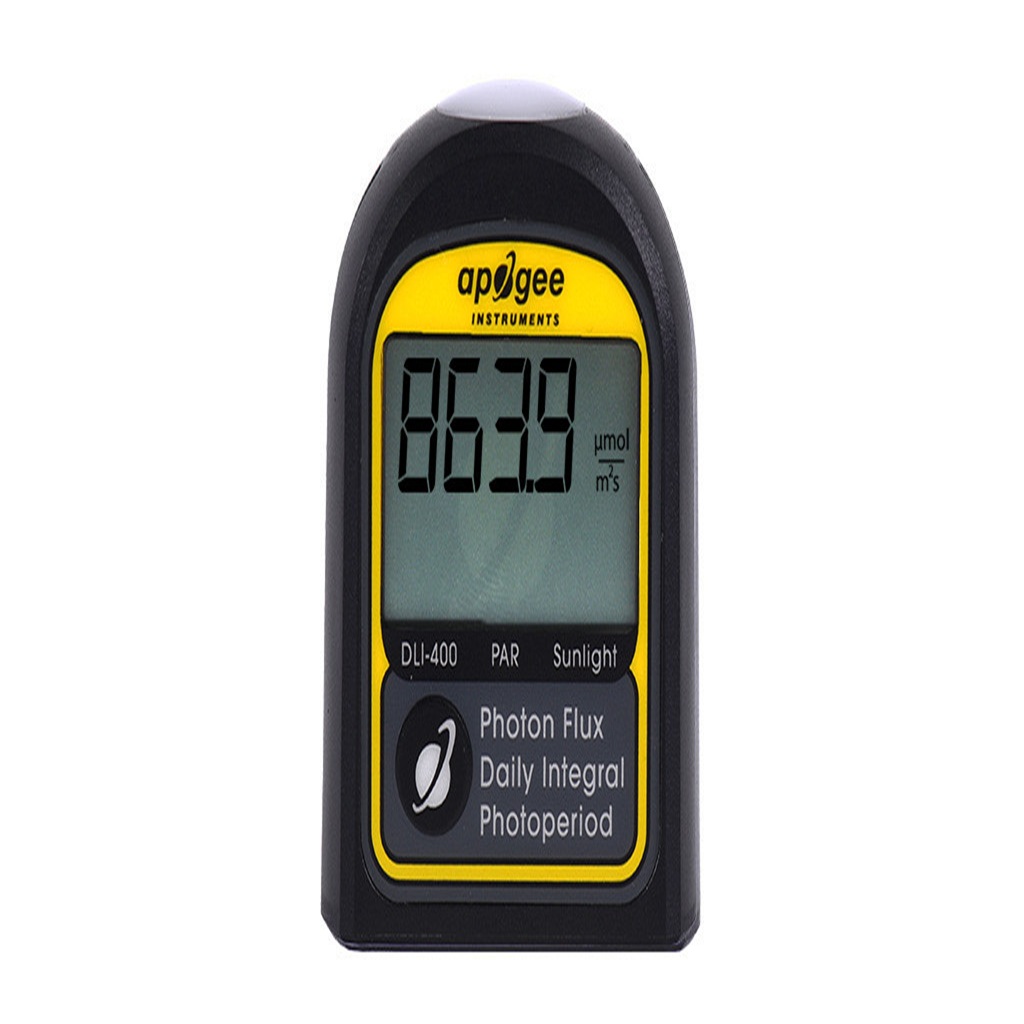
The Apogee DLI Meters (DLI-400, DLI-500, and DLI-600) are compact, rugged tools for accurately measuring PAR and ePAR light levels, tailored for greenhouse growers, horticulturists, and researchers. These meters record and display Daily Light Integral (DLI) and photoperiod values for up to 99 days, making light monitoring simple and efficient.
Read MoreChoose from sunlight-only (DLI-400), full-spectrum PAR (DLI-500), or extended ePAR 400–750 nm (DLI-600) for precise spectral targeting. With ±5% calibration uncertainty, sub-0.5% repeatability, and less than 2% annual drift, they provide scientific-grade accuracy in real-world conditions. Measurements update every 2.5 seconds, and data is clearly visible on the digital screen or exportable via USB-C. These devices are IP65-rated, splashproof, and operate reliably in extreme temperatures from -40°C to 70°C. A universal tripod mount offers easy positioning in any growing space. The built-in memory logs DLI, PPFD/ePPFD, and light hours with 0.1 resolution, enabling precise light planning. Whether you’re spot-checking or conducting long-term light studies, Apogee’s DLI meters deliver reliable insights with simplicity and speed.
show lessApogee Leaf Temperature (RFD)
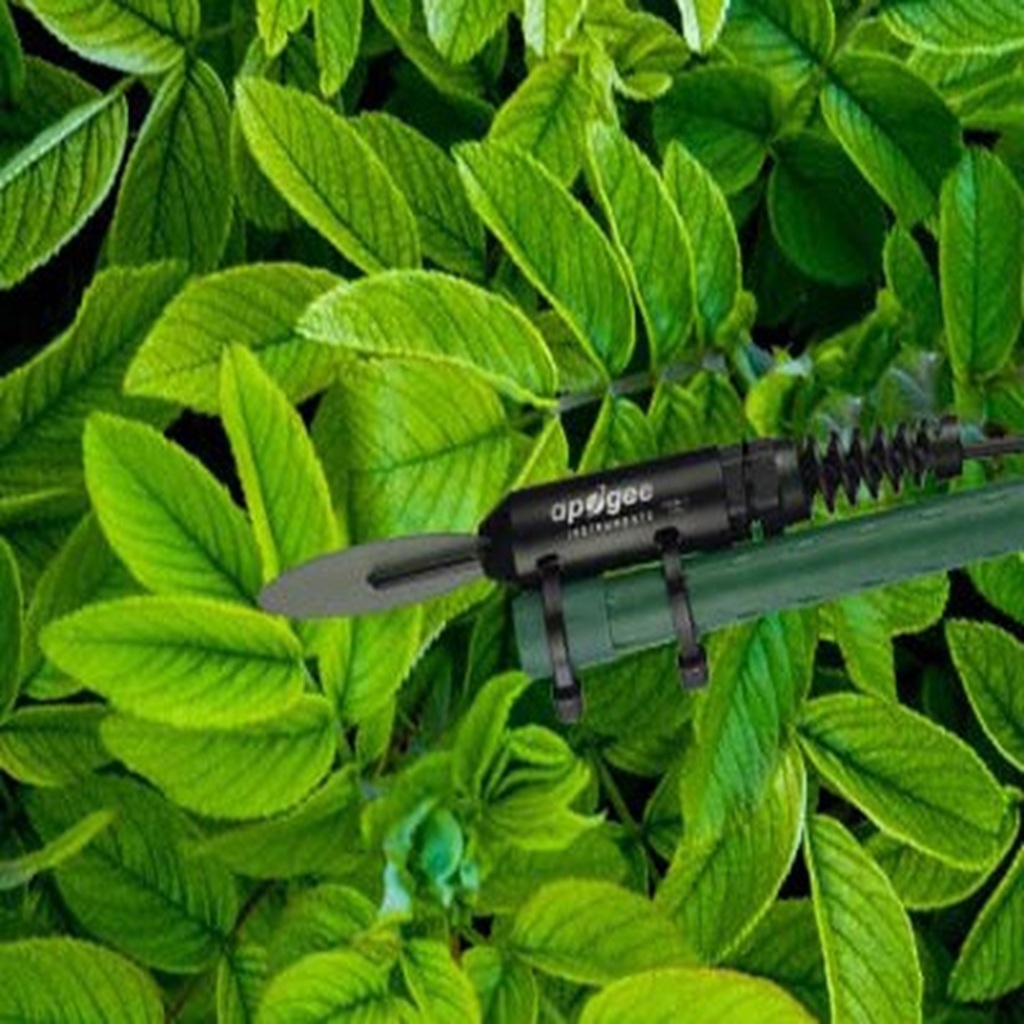
The Apogee SF-110 Radiation Frost Detector is a specialized sensor engineered to detect radiation frost risk by accurately estimating leaf temperature, which can fall below air temperature on calm, clear nights. Its high-precision thermistor mimics real leaf surfaces, enabling early frost alerts—often hours before air temperatures freeze.
Read MoreWith ±0.1°C accuracy from 0 to 70°C and repeatability under 0.05°C, it ensures highly reliable readings where frost damage is most likely to occur. Designed for orchards, vineyards, and crop fields, the SF-110 helps protect sensitive plants through advanced warning systems. The sensor offers fast 10-second equilibration, minimal self-heating, and ultra-low drift (<0.02°C per year) in stable environments. Built with a rugged, weatherproof housing, it operates in extreme conditions from -50°C to 70°C with 100% humidity tolerance. Output options include analog voltage and SDI-12, making it simple to integrate with existing data loggers or control systems. The lightweight design and leaf-mimicking structure provide practical, field-ready deployment. Trusted in agricultural frost management, the SF-110 is a powerful tool for proactive crop protection.
show lessKey Parameters Tracked
- Photosynthetically Active Radiation (PAR)
- Extended PAR / ePAR (including far-red light)
- Solar Radiation / Total Light Intensity
- Air Temperature
- Relative Humidity
- Dew Point
- Vapor Pressure Deficit (VPD)
- Carbon Dioxide (CO₂) Concentration
- Soil Moisture
- Soil Temperature
- Chlorophyll Content
- Leaf Temperature
- Normalized Difference Vegetation Index (NDVI)
- Barometric Pressure
- Wind Speed and Wind Direction (for open fields)
- Rainfall (via integrated rain sensors)
- UV Radiation (optional in some sensors)
Key Features
- High-Precision Light Measurement: Accurately measures PAR and solar radiation to optimize photosynthesis.
- Environmental Monitoring: Tracks air temperature, humidity, dew point, and VPD for climate control.
- CO₂ Level Detection: Supports better ventilation and plant respiration management in greenhouses.
- Chlorophyll & NDVI Monitoring: Indicates plant health, stress, and nutrient status.
- Weather-Resistant Design: Built for harsh field conditions with durable, sealed construction.
- Soil Moisture & Temperature Sensing: Aids in irrigation scheduling and root zone management.
- Real-Time Data Logging: Continuous data capture for analysis, alerts, and historical review.
- Plug-and-Play Integration: Easily connects to existing data loggers, controllers, or cloud platforms.
- Handheld & Remote Use Options: Supports portable monitoring as well as remote telemetry systems.
- Supports Sustainable Farming: Helps reduce water, fertilizer, and energy use by providing accurate insights.
Benefits
- Improved Crop Yields: By monitoring plant conditions in real time, you can take action at the right time to boost productivity.
- Efficient Resource Use: Optimize water, fertilizer, and energy usage based on accurate environmental data, reducing waste and costs.
- Early Detection of Plant Stress: Identify nutrient deficiencies, water stress, or disease symptoms before they become visible.
- Better Decision Making: Data-driven insights support smarter farm management strategies and day-to-day operational choices.
- Climate Control in Greenhouses: Maintain optimal growing conditions for each crop stage with precise environmental measurements.
- Reduced Crop Loss: Prevent damage caused by extreme weather, pests, or poor growing conditions through proactive monitoring.
- Support for Sustainable Farming: Encourages eco-friendly practices that protect natural resources and reduce environmental impact.
- Higher Quality Produce: Uniform growing conditions and proper nutrient control lead to better size, taste, color, and shelf life.
- Remote Access and Automation: Monitor farm data from anywhere and automate irrigation or ventilation systems for efficiency.
- Research and Record Keeping: Enables scientific data collection for crop trials, compliance, and long-term agricultural planning.

